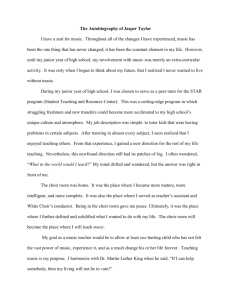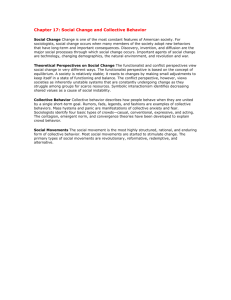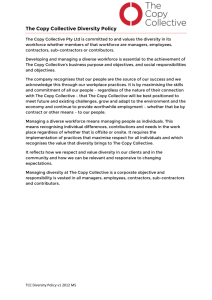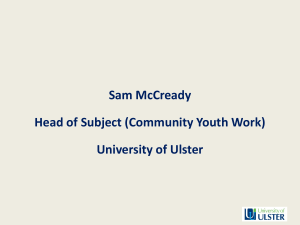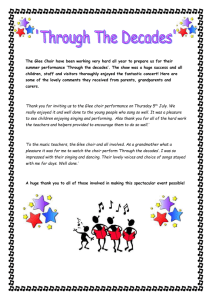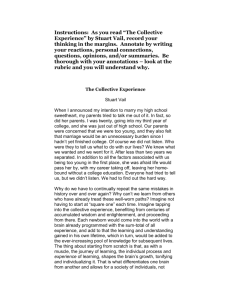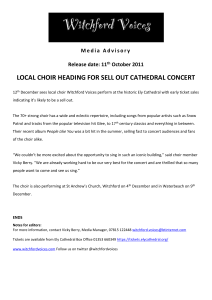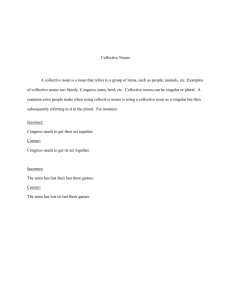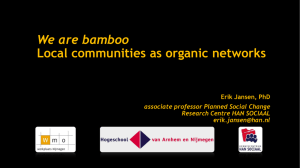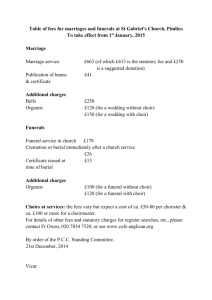Music and Social Movement
advertisement
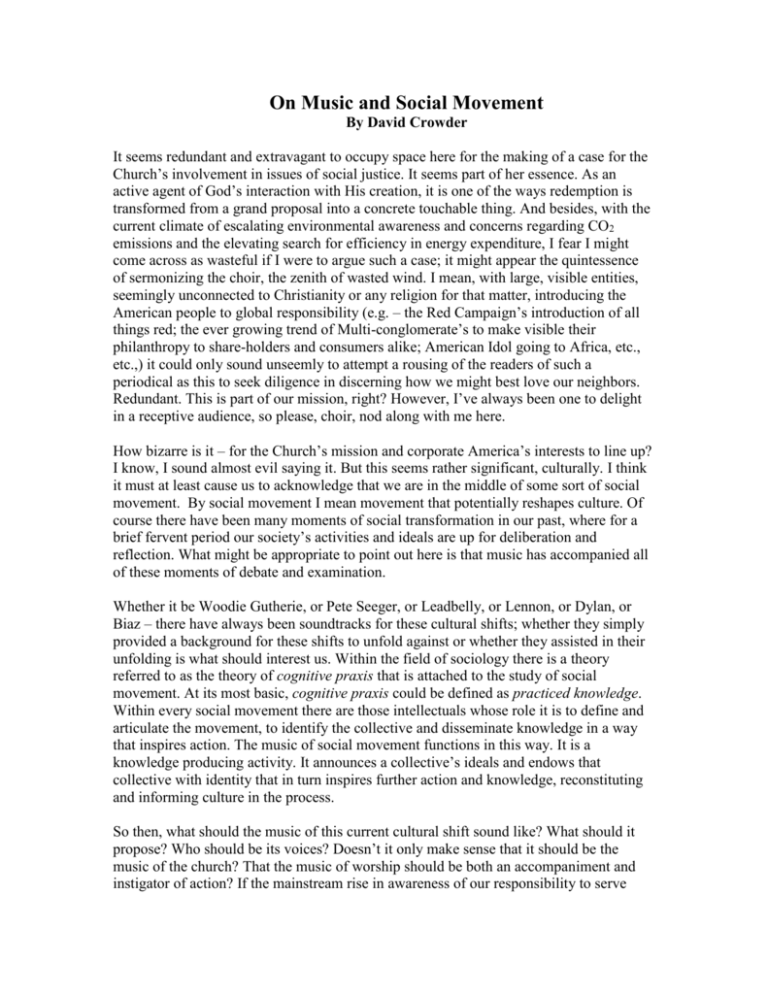
On Music and Social Movement By David Crowder It seems redundant and extravagant to occupy space here for the making of a case for the Church’s involvement in issues of social justice. It seems part of her essence. As an active agent of God’s interaction with His creation, it is one of the ways redemption is transformed from a grand proposal into a concrete touchable thing. And besides, with the current climate of escalating environmental awareness and concerns regarding CO2 emissions and the elevating search for efficiency in energy expenditure, I fear I might come across as wasteful if I were to argue such a case; it might appear the quintessence of sermonizing the choir, the zenith of wasted wind. I mean, with large, visible entities, seemingly unconnected to Christianity or any religion for that matter, introducing the American people to global responsibility (e.g. – the Red Campaign’s introduction of all things red; the ever growing trend of Multi-conglomerate’s to make visible their philanthropy to share-holders and consumers alike; American Idol going to Africa, etc., etc.,) it could only sound unseemly to attempt a rousing of the readers of such a periodical as this to seek diligence in discerning how we might best love our neighbors. Redundant. This is part of our mission, right? However, I’ve always been one to delight in a receptive audience, so please, choir, nod along with me here. How bizarre is it – for the Church’s mission and corporate America’s interests to line up? I know, I sound almost evil saying it. But this seems rather significant, culturally. I think it must at least cause us to acknowledge that we are in the middle of some sort of social movement. By social movement I mean movement that potentially reshapes culture. Of course there have been many moments of social transformation in our past, where for a brief fervent period our society’s activities and ideals are up for deliberation and reflection. What might be appropriate to point out here is that music has accompanied all of these moments of debate and examination. Whether it be Woodie Gutherie, or Pete Seeger, or Leadbelly, or Lennon, or Dylan, or Biaz – there have always been soundtracks for these cultural shifts; whether they simply provided a background for these shifts to unfold against or whether they assisted in their unfolding is what should interest us. Within the field of sociology there is a theory referred to as the theory of cognitive praxis that is attached to the study of social movement. At its most basic, cognitive praxis could be defined as practiced knowledge. Within every social movement there are those intellectuals whose role it is to define and articulate the movement, to identify the collective and disseminate knowledge in a way that inspires action. The music of social movement functions in this way. It is a knowledge producing activity. It announces a collective’s ideals and endows that collective with identity that in turn inspires further action and knowledge, reconstituting and informing culture in the process. So then, what should the music of this current cultural shift sound like? What should it propose? Who should be its voices? Doesn’t it only make sense that it should be the music of the church? That the music of worship should be both an accompaniment and instigator of action? If the mainstream rise in awareness of our responsibility to serve those outside of ourselves meets with the mission of the church, if to be on the side of what is just is to be on the side of God, if to do so is to be part of God’s redemptive act here and now, then wouldn’t it make sense that we, the Church, would provide the soundtrack? If suddenly the collective consciousness of our mainstream culture and the Church are bent toward the same things then, choir, I say we get to singing.

